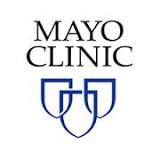Clarification of Optimal Anticoagulation Through Genetics
| Status: | Completed |
|---|---|
| Conditions: | Atrial Fibrillation, Cardiology, Neurology |
| Therapuetic Areas: | Cardiology / Vascular Diseases, Neurology |
| Healthy: | No |
| Age Range: | 18 - Any |
| Updated: | 4/21/2016 |
| Start Date: | September 2009 |
| End Date: | November 2013 |
A Randomized, Multi-Center, Double-Blind Clinical Trial to Evaluate the Use of Clinical Plus Genetic Information to Guide Warfarin Therapy Initiation and Improve Anticoagulation Control for Patients
Individuals taking warfarin often need frequent dose changes as the international normalized
ratio (INR) gets too high or too low which could result in a higher risk of thromboembolism,
bleeding and early discontinuation of a highly useful therapy. This study will compare two
approaches to warfarin dosing to examine the utility of using genetic information for
warfarin dosing.
ratio (INR) gets too high or too low which could result in a higher risk of thromboembolism,
bleeding and early discontinuation of a highly useful therapy. This study will compare two
approaches to warfarin dosing to examine the utility of using genetic information for
warfarin dosing.
The objective of the Clarification of Optimal Anticoagulation through Genetics (COAG) trial
is to conduct a 1,022 participant, multicenter, double-blind, randomized trial comparing two
approaches to guiding warfarin therapy initiation: 1) initiation of warfarin therapy based
on algorithms using clinical information and an individual's genotype using genes known to
influence warfarin response ("genotype-guided dosing"), and 2) initiation of warfarin
therapy based on algorithms using only clinical information ("clinical-guided dosing"). The
study hypothesis is that the use of genetic and clinical information for selecting the dose
of warfarin during the initial dosing period will lead to improvement in stability of
anticoagulation(AC) relative to a strategy that incorporates only clinical information
(without genetics) for initial dosing. Each study arm will include a baseline dose
initiation algorithm and a dose revision algorithm applied over the first 4 to 5 doses of
warfarin therapy. By comparing the two strategies in this trial, the study will be able to
determine if genetic information provides added benefit above and beyond what can be gleaned
simply with clinical information. This study is a proof-of-concept efficacy trial. Efficacy
is defined as a measure of whether, under optimal application, dosing algorithms will lead
to improvement in care. The trial will thus answer the question: "can the use of clinical
plus genetic information lead to an improvement in anticoagulation control above and beyond
the use of only clinical information during the initiation of warfarin, when applied in a
uniform and optimal manner to all patients?" Because efficacy has not yet been established
for genotype-guided dosing of warfarin, it is important to first test whether this approach
can, indeed, improve anticoagulation outcomes under controlled conditions.
is to conduct a 1,022 participant, multicenter, double-blind, randomized trial comparing two
approaches to guiding warfarin therapy initiation: 1) initiation of warfarin therapy based
on algorithms using clinical information and an individual's genotype using genes known to
influence warfarin response ("genotype-guided dosing"), and 2) initiation of warfarin
therapy based on algorithms using only clinical information ("clinical-guided dosing"). The
study hypothesis is that the use of genetic and clinical information for selecting the dose
of warfarin during the initial dosing period will lead to improvement in stability of
anticoagulation(AC) relative to a strategy that incorporates only clinical information
(without genetics) for initial dosing. Each study arm will include a baseline dose
initiation algorithm and a dose revision algorithm applied over the first 4 to 5 doses of
warfarin therapy. By comparing the two strategies in this trial, the study will be able to
determine if genetic information provides added benefit above and beyond what can be gleaned
simply with clinical information. This study is a proof-of-concept efficacy trial. Efficacy
is defined as a measure of whether, under optimal application, dosing algorithms will lead
to improvement in care. The trial will thus answer the question: "can the use of clinical
plus genetic information lead to an improvement in anticoagulation control above and beyond
the use of only clinical information during the initiation of warfarin, when applied in a
uniform and optimal manner to all patients?" Because efficacy has not yet been established
for genotype-guided dosing of warfarin, it is important to first test whether this approach
can, indeed, improve anticoagulation outcomes under controlled conditions.
Inclusion Criteria:
- Willingness and ability to sign informed consent
- Able to be followed in outpatient AC clinic
- Expected duration of warfarin therapy of at least 1 month
- AC management for the patient will be performed in-hospital and as an outpatient by
clinicians that will adhere to the study dosing algorithms and dose titration plans
- Target INR 2-3
Exclusion Criteria:
- Currently taking warfarin
- Prior warfarin therapy with known required stable dose
- Clinician opinion that warfarin dosing needs to be adjusted for reasons not accounted
for by dosing algorithm
- Abnormal baseline INR (off warfarin) (e.g., due to liver disease, antiphospholipid
antibody)
- Contraindication to warfarin treatment for at least 3 months
- Life expectancy of less than 1 year
- Pregnant women or child-bearing women not using medically approved method of birth
control (requires negative pregnancy test to exclude pregnancy in child-bearing
women)
- Inability to follow-up on a regular basis with anticoagulation practitioners
participating in the trial
- Any factors likely to limit adherence to warfarin
- Cognitive or other causes of inability to provide informed consent or follow study
procedures
- Participating in another trial that prohibits participation in the COAG trial or
planned enrollment in such a trial within the first 6 months of warfarin therapy
- Estimated blood loss of more than 1,000 cc requiring blood transfusions within 48
hours prior to randomization
- Genotype (CYP2C9 or VKORC1) known to participant from prior testing
We found this trial at
18
sites
Georgia Health Sciences University Georgia Regents University, home of the Medical College of Georgia, is...
Click here to add this to my saved trials
University of Alabama at Birmingham The University of Alabama at Birmingham (UAB) traces its roots...
Click here to add this to my saved trials
Montefiore Medical Center As the academic medical center and University Hospital for Albert Einstein College...
Click here to add this to my saved trials
Duke University Younger than most other prestigious U.S. research universities, Duke University consistently ranks among...
Click here to add this to my saved trials
University of Florida The University of Florida (UF) is a major, public, comprehensive, land-grant, research...
Click here to add this to my saved trials
University of Texas Medical Branch Established in 1891 as the University of Texas Medical Department,...
Click here to add this to my saved trials
3400 Spruce St
Philadelphia, Pennsylvania 19104
Philadelphia, Pennsylvania 19104
(215) 662-4000

Hospital of the University of Pennsylvania The Hospital of the University of Pennsylvania (HUP) is...
Click here to add this to my saved trials
655 West Baltimore Street
Baltimore, Maryland 21201
Baltimore, Maryland 21201
(410) 706-7410

University of Maryland School of Medicine Established in 1807, The School of Medicine is the...
Click here to add this to my saved trials
Henry Ford Hospital Founded in 1915 by auto pioneer Henry Ford and now one of...
Click here to add this to my saved trials
Click here to add this to my saved trials
Intermountain Medical Center Intermountain Medical Center is one of the most technologically advanced and patient-friendly...
Click here to add this to my saved trials
Vanderbilt University Vanderbilt offers undergraduate programs in the liberal arts and sciences, engineering, music, education...
Click here to add this to my saved trials
Click here to add this to my saved trials
Click here to add this to my saved trials
Mayo Clinic College of Medicine Mayo Medical School enrolls a select class of 50 medical...
Click here to add this to my saved trials
Click here to add this to my saved trials
Click here to add this to my saved trials
Click here to add this to my saved trials









